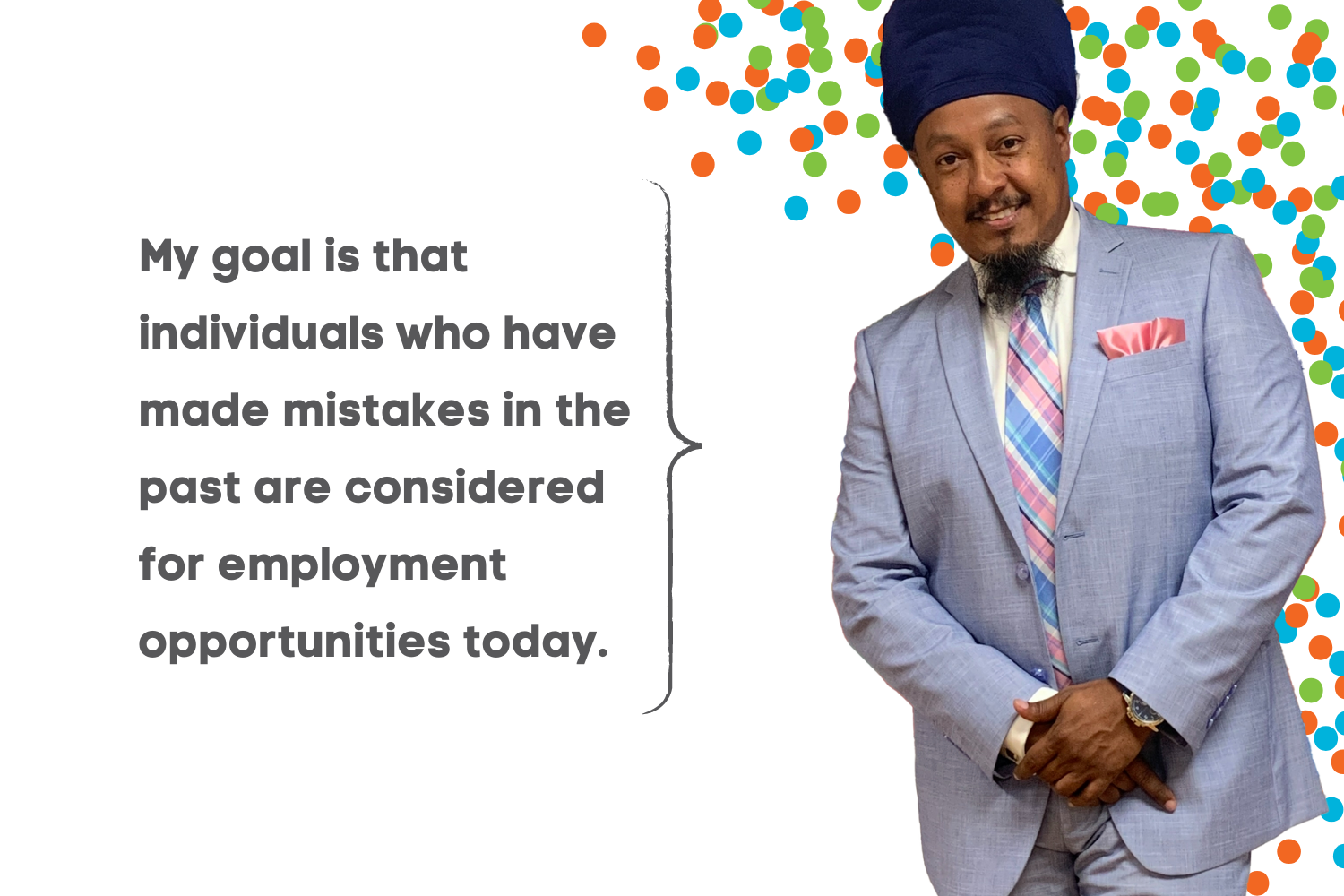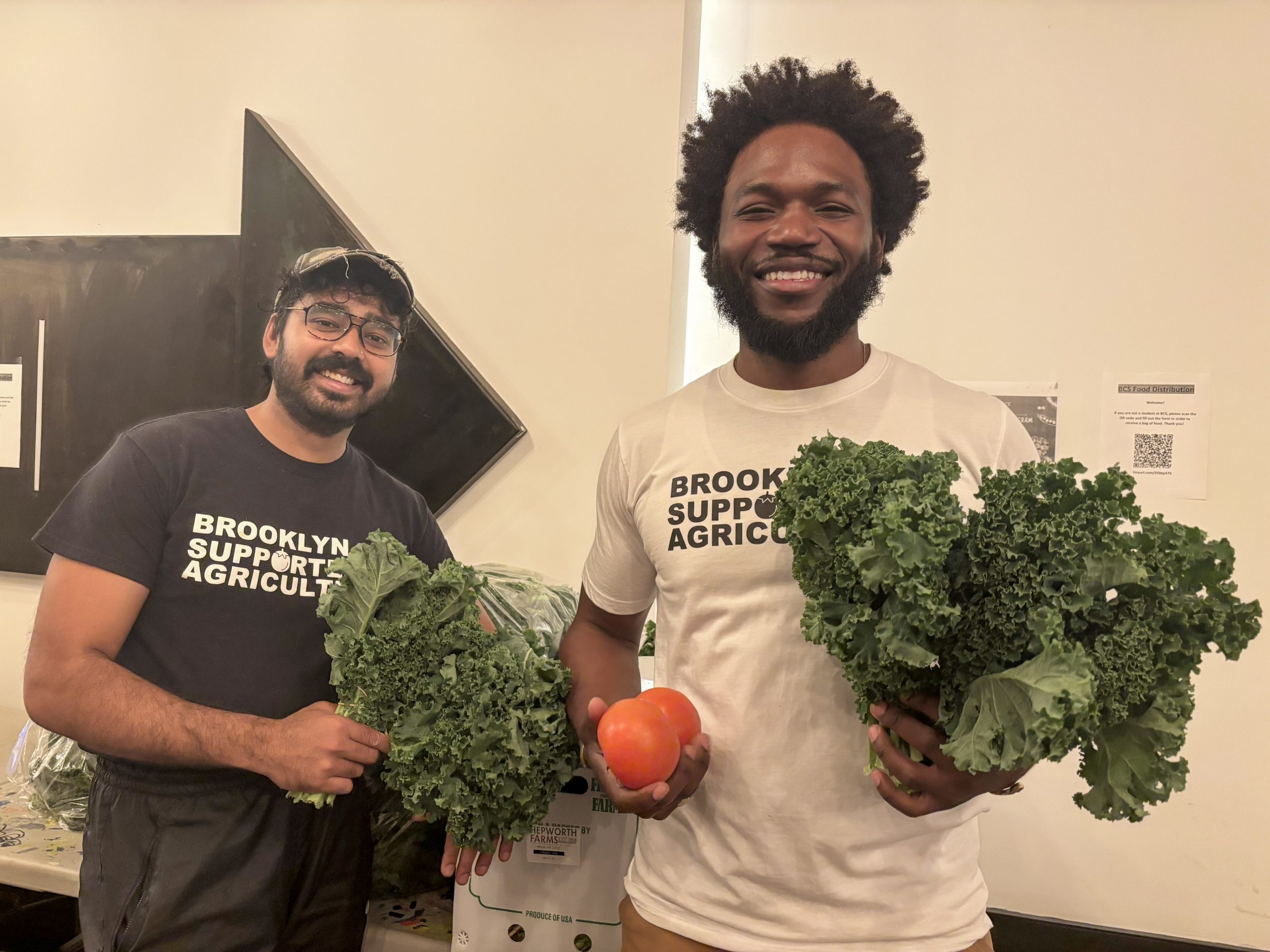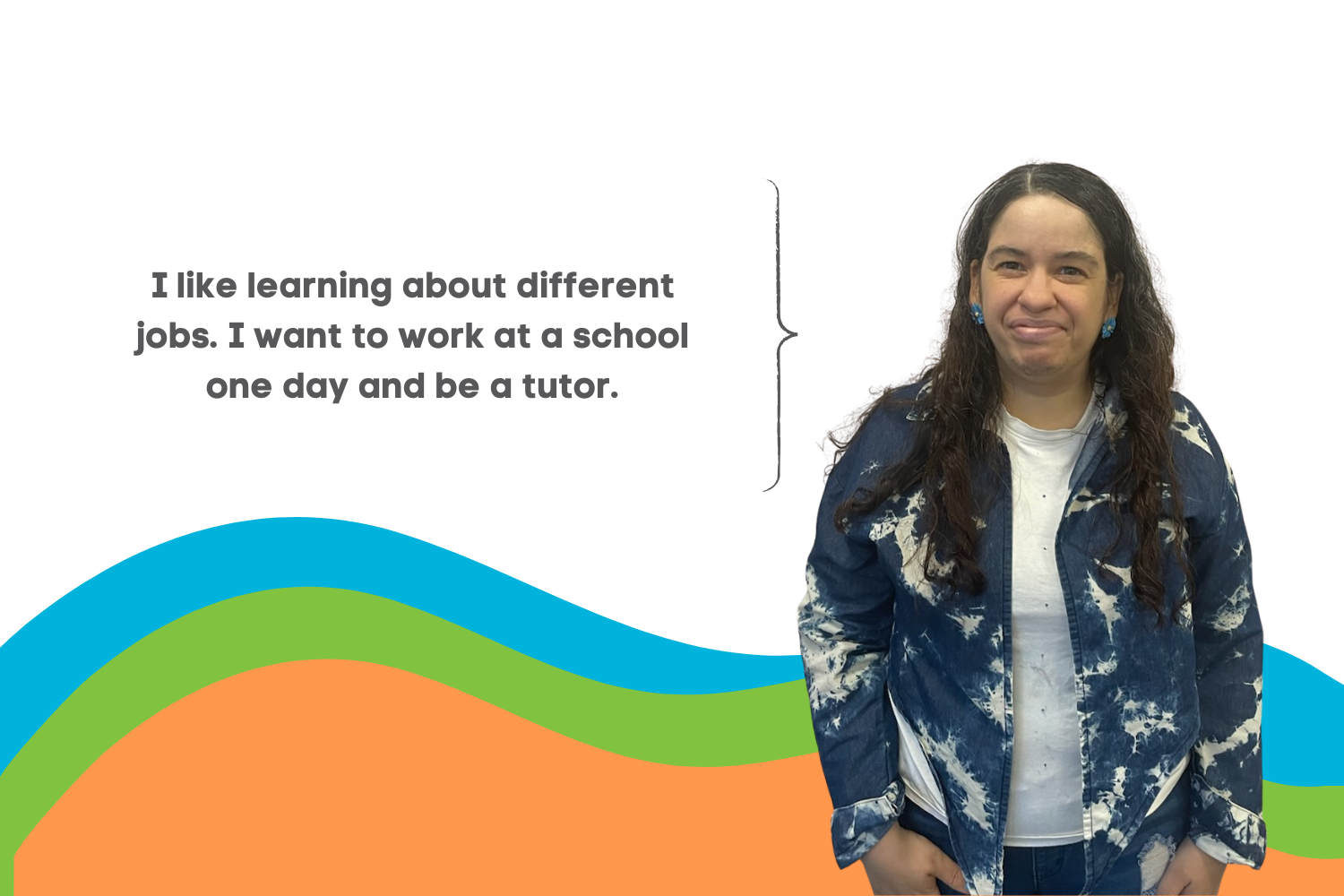Staff Spotlight: Hubert Lila, Director of the Works Plus, NeON, and Fatherhood programs

Who are you and what do you do at BCS?
My name is Hubert Lila and I oversee the Works Plus, NeON, and DYCD Fatherhood programs at BCS. Most of our Fatherhood clients are referred from ACS (Administration for Children’s Services). That means many of them are court-involved or have some type of mandate. We provide parenting, anger management, and domestic violence training for these individuals, and also help them to reunify with their families. I also direct the DOP (Department of Probation) NeON program. The NeON program works with individuals from the community and on probation. We serve one hundred individuals a year, and we help them with professional skills development. They work with vocational, educational, and therapeutic services. It all depends on what they need. Our motto for this program is “one size fits one.” When we sit down with a young person, we assess what that individual needs or what that person wants to do. One person might just need a job. One person might say, “I need some training,” one person might say “I just need help with a resume.” It’s really just an opportunity to meet people where they are and help them get to the next phase in their life.
How did you first get involved in BCS? And how long have you worked here?
I came here in 2020, so about four years. I have worked with the justice-involved population for thirteen years. I believe that everybody deserves a second chance and that we need to provide them with that chance. Ultimately, the people that are returning to the community are going to be our neighbors. What condition our neighbors are in is up to us. I’d rather them be a person with education, some type of vocational skills, to be in a position to contribute to the community rather than hurt the community. I’m a firm believer in working with individuals and helping individuals. I always say that the only thing that differentiates individuals from the suburbs versus the inner city, is not ability, but accessibility. This means access to education, access to employment, access to different skills trainings, and so forth. I believe if we give these individuals the opportunity to make the better choice, they will make the better choice. If a person had a misdemeanor or felony 10 years ago, is it fair to block them from employment forever? My goal is that individuals who may have made mistakes in the past are considered for employment opportunities today.
Why did you choose to work in this field?
When I was a teenager, I was affected by the judicial system. Yes, I made some bad decisions. Yes, I accept full responsibility for that. But someone took a chance on me. I turned my life around and received my education. It’s very important that I continue to keep that door open for someone else and let them know that crime is not the end-all be-all. You still have an opportunity to rewrite the book. You can’t write the past chapter, but we can write the next chapter of your life. I try to be a role model, when they say, “I can’t do it, I went to jail one time.” I say, “Knock it off.” They’re speaking with someone who’s a credible messenger, someone who understands where they came from, but can also see the vision of where they can go. My job is to help them see that vision. That’s why I take it so personally, because I’m from this community and I know how destructive it can be. I also know how important mentoring can be. People might say, “Why do these young people need a mentor?” Because every great person needs a mentor. If you see a successful person, it’s okay to ask them, “How did you do it?” I believe in sharing those steps and mentoring young individuals so they can have a positive outcome. The reason the work that I do is near and dear to me is because someone took a chance on me, even though I was justice-involved. We have to say, “I don’t just see what you did 10 or 20 years ago. I also see what you can become.” I hope that young people will not only see what they did in the past, but also their potential.
Why are your programs especially important in East New York?
The NeON and Works Plus contracts are responsible for the East New York area. If you look at the demographics, this is probably the lowest income neighborhood in Brooklyn. Opportunity is scarce, vocational opportunities are scarce, even the opportunity to get a good meal around is scarce. This community is deprived of services in so many different ways. East New York is where we are needed the most. Everyone may not be aware that these services are available because this contract is only four years old. We’re letting people know that BCS is here for you and it’s a judgment free zone. Most of our clients are referred from probation and ACS. We also accept community walk-ins– anyone who just needs help right away. “I have a job interview. Can you guys help me with the resume?” Or “Hey, I’m kind of nervous about this interview.” We’ll do mock interviews with you, we’ll edit your resume, or whatever else you may need.
What’s your favorite part of your job?
My favorite part of the job is when a person receives their first vocational certificate or GED. It may seem insignificant in the larger scheme of life, but success breeds success. My motto is “undersell and over deliver.” They come here like, “Hey, I heard you guys were giving out refreshments today.” Or “I heard I can get a stipend.” They may come with a stipend on their mind, but they leave with so much more. I think the biggest reward is when a person doesn’t have much expectation and then they’re like “Wow, this is really good.” And then they may refer a friend from the community and so forth. And then once you have the OSHA certification, you can put that on your resume and then you’re able to get a job in construction. And once you have the job in construction, now you might be able to join the union. Long story short, we put that individual in a position to feed his family. We put that individual in a place to be able to take care of himself, to pay rent, to support himself. And that would not have happened if he didn’t take the first step of participating in our programs. I always tell people the hardest part is just walking through the door. Once you walk through the door, you’re going to be alright. We’re going to guide you, we’re here for you. We know where you want to go and I’m going to help you get there.
When you are looking for staff, do you think it’s important that the staff, like case managers and social workers, are from the community they’re serving?
You don’t necessarily have to be from the community, but you have to know the community and have some experience with the community. Sometimes the person can come with the best of intentions but lacks the skill set to communicate with our clients, whether it be justice-involvement, or dealing with literacy, or language issues. Having good intentions is good, but having the skill set to match those good intentions is even better. Everyone has good intent, but do you have the skill set to handle the work? Do you have the cultural competency to deal with the community that you intend to serve?
What would you say is a challenging aspect of your job?
The most challenging aspect of the job is communicating with my staff that people are going to disappoint us sometimes. I may set up an interview for an individual and for whatever reason, the person doesn’t show up. I may pay for a training for an individual, and that person decides that they don’t want to work anymore. And the reason why is because sometimes a person might have one foot in the streets, one foot in the classroom. Not to say, we want to turn that person away, when you are ready to commit, and you are serious we’ll always be here for you. My staff may be disappointed when we find a person for a job and then two weeks later, the person quits that job. It’s difficult because now I have to tell that employer, “Hey, I got somebody else for you.” And the employer will be like, “Listen, if that was the best man you sent me, I don’t want to see the others.” I say to my staff that working in the field of human services, you can’t just like people, you have to love people. You have to understand that people are going to come with human frailties. I tell them all the time, if the world was perfect, there would be no need for BCS. So, understand that people are gonna disappoint us from time to time, but you still gotta love them, you still have to love the job, and you still got to be willing to assist them next time they’re in need. I don’t just think these challenges are only with this population, I think it’s any population– people are people. A person could graduate from Columbia, get a job and still decide, “I think I want to quit my job and write a comic book.” That’s the only disappointment about the job, sometimes you want so much more for an individual than they’re able to see for themselves.
Is there anything else you want to add that you would want people to know about your programs?
One thing I want people to know is that you don’t have to come here with a game plan, we’ll help you figure it out. It’s perfectly fine if you just want to just come in and observe how we run our workshops. It’s no one size fits all, we create a success plan for each individual. I think this is what makes us unique. More importantly, our staff are credible messengers, they are individuals from the community that know the community and are here to serve the community. I tell my case managers, “The office that you have, the chair that you sit in, the computer you use, it’s all here because of our clients. If it wasn’t for our clients, none of us would be here, so the clients always come first.”
Top Viewed Posts
Youth Art Programs
Program Spotlight: Day Habilitation
BCS Volunteers Spring into Action for Brooklyn
Recent News

Participant Spotlight: Ann Salmon, PROS
July 16, 2025
Read More
 SUBSCRIBE
SUBSCRIBE 











